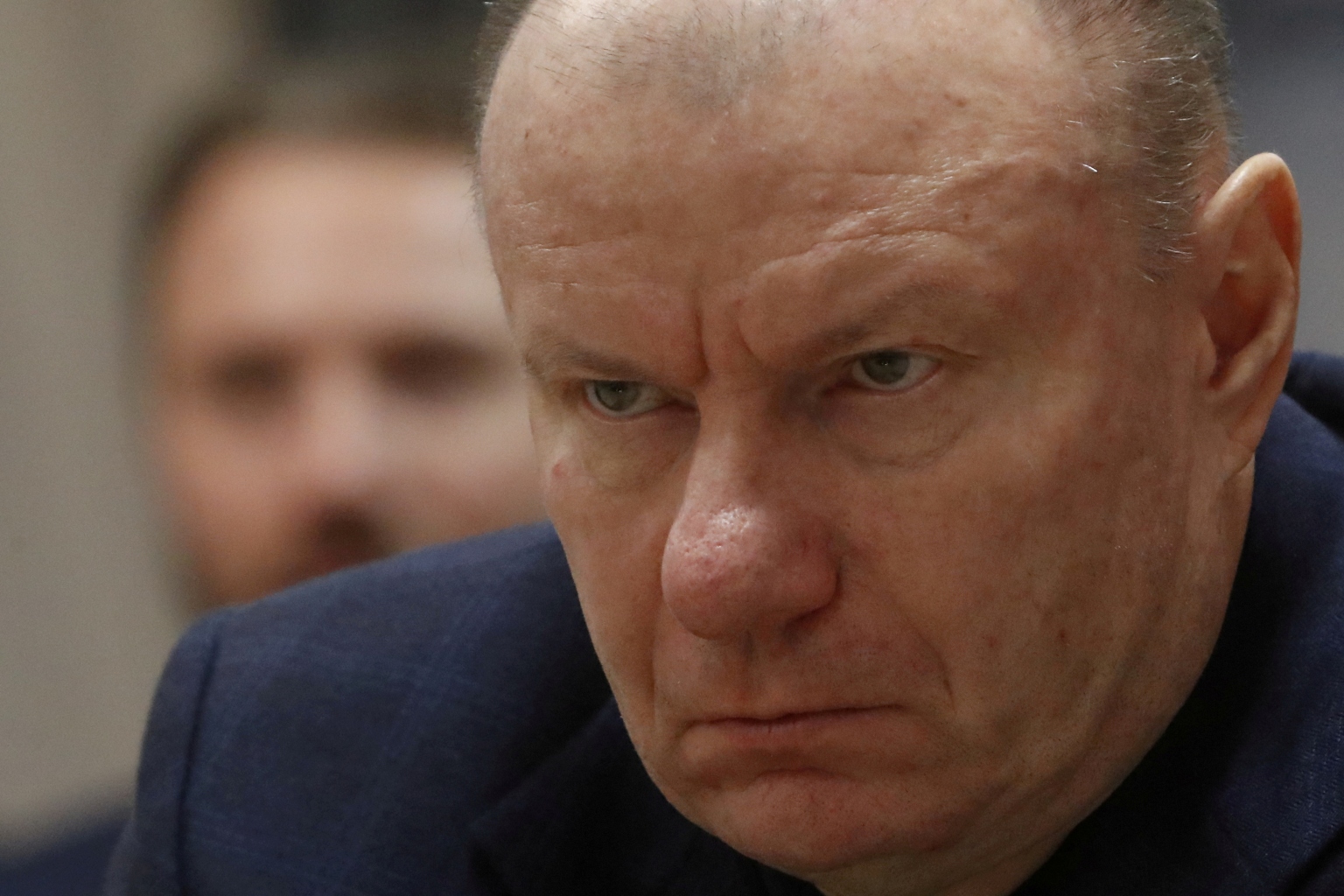Richest Russian strikes deal as sanctions snare other oligarchs
Sign up now: Get ST's newsletters delivered to your inbox

Mr Vladimir Potanin is not under sanctions and bought a Western stake in a Russian bank he formerly owned.
PHOTO: REUTERS
Follow topic:
NEW YORK (BLOOMBERG) - While many Russian tycoons were scrambling to shift their assets and move their superyachts in the wake of Western sanctions, the country's richest man, Mr Vladimir Potanin, was doing all that and more.
Mr Potanin's Interros Capital agreed on Monday (April 11) to buy Societe Generale's entire stake in Rosbank. It is an asset Mr Potanin knows well: He and fellow billionaire Mikhail Prokhorov previously owned the bank, hired some of its executives and had planned to take it public in the mid-2000s until SocGen took a 10 per cent position.
Within a few years, the Paris-based lender controlled the entity, Mr Prokhorov was no longer a shareholder and Mr Potanin cashed out his remaining stake.
It has been a difficult period for Mr Potanin, 61, the president of Norilsk Nickel (Nornickel).
The miner is facing increased freight costs and insurance issues and it is tougher to find ships to carry its nickel, according to sources with knowledge of the situation. Interros' planned 90 billion rouble (S$1.5 billion) investment in Russian projects aimed at international tourists might be partially suspended.
Still, Mr Potanin's ability to make a major purchase from France's third-largest bank puts in stark relief the difference between him and other oligarchs of his generation: He is not sanctioned by the United States, Britain or the European Union.
While other billionaires like Dr Vladimir Lisin have also avoided penalties, Mr Potanin wielding his US$29 billion fortune to strike deals with the West contrasts with Mr Mikhail Fridman and Dr Petr Aven, who have said in interviews that sanctions ruined their lives.
"One reason the deal is possible is that he's not on the sanctions list," said Mr Jerome Legras, a managing partner in Paris at Axiom Alternative Investments.
While full terms of the accord were not disclosed, SocGen said it would take a hit of about €3 billion (S$4.4 billion) on the sale.
That suggests that as long as Russia's banking system does not collapse, Mr Potanin "will have made a great deal", Mr Legras said.
Mr Potanin is Russia's richest person, largely due to his roughly one-third stake in Nornickel, according to the Bloomberg Billionaires Index.
He is one of the country's original oligarchs who is still wealthy, profiting along with other bankers in the 1990s from the privatisation of natural resource companies after the Soviet Union's collapse.
Mr Potanin was also first deputy prime minister under Mr Boris Yeltsin.
Nickel defense
Experts say it is of little mystery why Mr Potanin remains largely unscathed: His Nornickel accounts for about 40 per cent of the global output of palladium, which helps cut pollution from cars, and 20 per cent of high-grade nickel, a key metal in electric vehicles.
Any penalty levied on the company could recoil on Western governments through supply shortages and higher prices for crucial raw materials.
Though Mr Potanin does not have a majority stake, sanctioning him could reverberate through Nornickel and the industry as well.
US President Joe Biden has taken some steps to rectify the raw material imbalance.
He invoked the Defence Production Act on March 31 to increase domestic nickel production and wean the country off of "unreliable foreign sources" for critical minerals and metals.
About 20 per cent of the nickel comes from Russia, much of it from the mine of Mr Potanin's Nornickel that was once a Siberian gulag.
'Enormous pressure'
While Nornickel is still distributing its metals under long-term deals with industrial clients, some of the world's largest transport companies, including AP Moller-Maersk, halted bookings in and out of Russia.
Shipments of palladium, traditionally done by passenger jets, have had to be re-routed with flights from Russia cut to only a few destinations.
Finnish company Outokumpu Oyj, one of the world's largest stainless-steel manufacturers, and Germany's BASF are among others distancing themselves from Russian nickel.
Outokumpu Oyj said it is looking for alternatives while BASF said it was fulfilling existing contracts but not pursuing new business with Nornickel.

